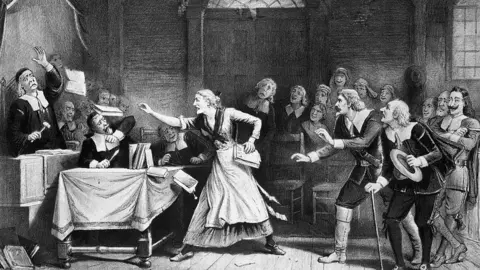New book explores Donald Trump’s alleged love for dictators
Former White House staff say Donald Trump expressed admiration
for Adolf Hitler. Photo: Getty
Former US president Donald Trump once said he believed Adolf Hitler did some good in his life, a new book alleges.
Perhaps it shouldn’t be too shocking as he did try to get cosy with Russian president Vladimir Putin, who according to his former chief of staff, Trump thinks is an “OK guy”.
General John Kelly was once Trump’s chief of staff and now he is spilling his secrets, which weren’t really that well kept.
In CNN anchor Jim Sciutto’s upcoming book, The Return of Great Powers, Kelly has revealed what Trump makes of world leaders, both past and present.
According to Sciutto in an article published on CNN, and based on conversations he has had, Trump thinks China’s Xi Jinping is “brilliant” but North Korea’s Kim Jong-un is merely an “OK guy”.
Kelly also alleged the former president said Putin “wouldn’t be doing these things” if NATO didn’t exist.
It’s not overly shocking. Trump has publicly praised leaders who are usually seen as enemies or adversaries of the US.
In an interview with Fox News, Trump praised Xi for ruling China with an “iron fist” and said he was “smart, brilliant, everything perfect”.
Trump went from calling Kim on Twitter (now X) to having a bizarre relationship with him.
Later on, the two apparently shared letters, which Trump said were “beautiful” and said the two “fell in love”.
Trump’s alleged admiration for Hitler
Regarding Trump’s comment regarding Hitler doing some “good things”, Kelly said he pressed him on it.
“He said, ‘Well, [Hitler] rebuilt the economy’. But what did he do with that rebuilt economy? He turned it against his own people and against the world. And I said, ‘Sir, you can never say anything good about the guy. Nothing’,” Kelly said according to CNN.
Kelly said he found it hard to believe Trump “missed the Holocaust and the fact 400,000 Americans were killed thanks to Hitler”, but he has a theory as to why Trump might admire such a despised historical figure.
“But I think it’s more, again, the tough guy thing,” Kelly said.
In the past, Trump’s camp has denied the allegations he thought Hitler did some good.
When approached by CNN, Trump campaign spokesperson Steven Cheung did not address the allegations, but instead took aim at Kelly and Bolton.
He said the two “completely beclowned themselves and are suffering from a severe case of Trump Derangement Syndrome”.
Cheung added they need to seek “professional help because their hatred is consuming their empty lives”.

Donald Trump likes to think of himself as a tough guy, former advisers say.
The ‘tough guy thing’
John Bolton also served in the Trump administration, as the US national security adviser. He also spoke to Sciutto.
Like Kelly, Bolton believes Trump’s alleged admiration for autocrats is due to how he sees himself, or how he wants other to see him.
“He views himself as a big guy,” Bolton said.
“He likes dealing with other big guys, and big guys like Erdogan in Turkey get to put people in jail and you don’t have to ask anybody’s permission. He kind of likes that.”
However, Kelly insists Trump is “not a tough guy by any means”; instead, he is the “opposite”, but it is how he likes to envision himself.
Trump was shocked by the lack of power
Kelly also believes the former president’s fondness for dictators is because “that’s who he is”.
He explained all presidents of the US are shocked to find out they have little power, without going through Congress, when they come into office.
“But in his case, he was shocked that he didn’t have dictatorial-type powers to send US forces places or to move money around within the budget,” Kelly said.
“And he looked at Putin and Xi and that nutcase in North Korea as people who were like him in terms of being a tough guy.”













